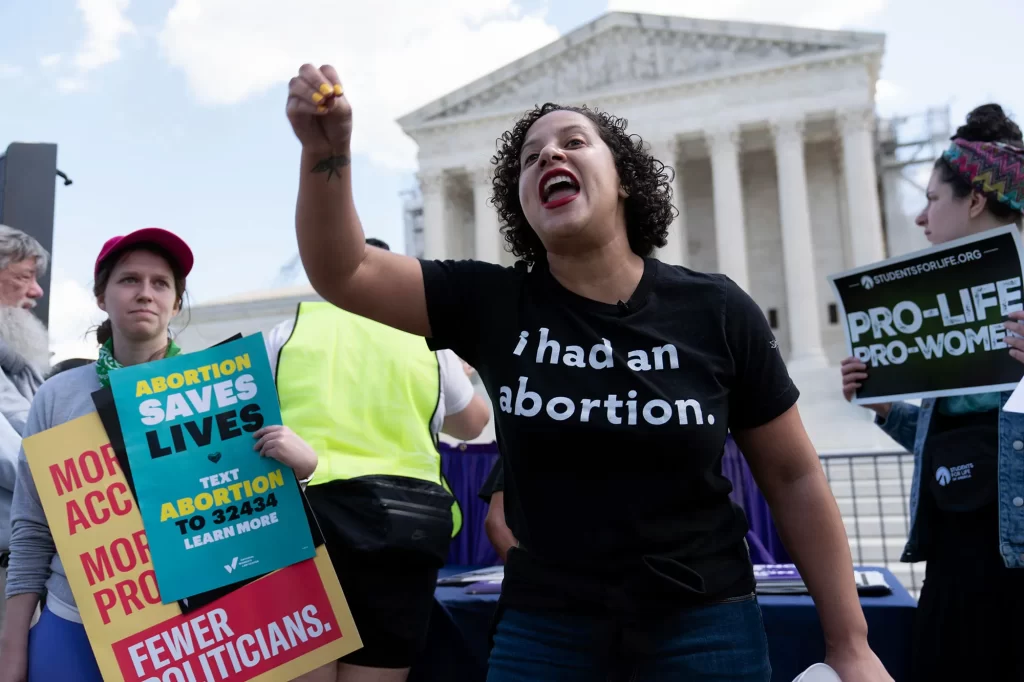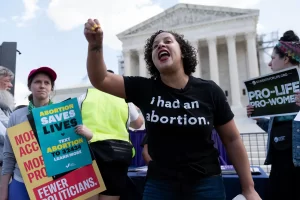
Abortion advocates, opponents agree on one thing about SCOTUS ruling: The fight isn't over
Julia Kaye, a senior staff attorney with the American Civil Liberties Union’s Reproductive Freedom Project, closely watched Thursday morning to see if the Supreme Court would significantly restrict access to the widely used abortion drug mifepristone, like many advocates across the country. When she learned that the high court had unanimously dismissed the challenge brought by anti-abortion doctors, maintaining the current status quo for medication abortion, she felt relieved. However, Kaye cautioned that the fight is far from over because the court dismissed the case on procedural grounds, avoiding the core issue of whether the Food and Drug Administration had exceeded its authority in loosening restrictions on the drug.
“These extremist attorneys general previously told the Supreme Court that even if these plaintiffs lose, states will either attempt to continue this case in Texas or bring similar lawsuits elsewhere,” Kaye said.
Anti-abortion advocates, including Mark Harrington, president of Created Equal, acknowledged that the battle over access to abortion pills continues. Some conservatives expressed disappointment with the decision and vowed to continue their efforts in both the courts and the public arena.
“They did not rule on the merits of the abortion pill or the FDA’s administration of it,” Harrington noted. “The justices only ruled that the plaintiffs lacked standing to sue.”
The potential loss of mifepristone “would have been devastating,” Kaye emphasized. Approved by the FDA nearly 25 years ago, mifepristone was used in almost two-thirds of abortions nationwide last year. Kaye underscored that if the Supreme Court had ruled differently, access to the medication could have been restricted across all states, including those where abortion remains legal.
Kaye pointed out that the court could have also limited access to the drug through mail prescriptions following telehealth appointments, a format crucial for abortion care.
Kaye emphasized that such an outcome would have been particularly harmful to people of color, low-income patients, those living in rural areas, and women in abusive situations. “For these groups, traveling long distances to obtain mifepristone would be nearly impossible due to the costs of transportation, childcare, and time off work, potentially cutting off access to essential healthcare.”
Some abortion advocates, such as Amy Hagstrom Miller, president and CEO of Whole Woman’s Health, had prepared contingency plans in case the court restricted access to the pills. She expressed relief that such measures would not be necessary.
“Now we feel confident that we can continue providing this care without disruption and even consider expanding our mail delivery programs into more states, ensuring access for abortion seekers without delay or obstacles,” she said.
While Kelly Baden, vice president of public policy at the Guttmacher Institute, found the decision positive, she stressed the challenges in celebrating victories amidst ongoing threats to abortion access nationwide. She highlighted that the Supreme Court has yet to decide on another critical case regarding whether doctors can perform emergency abortions in states that banned the procedure after Roe v. Wade was overturned.
Baden acknowledged that while the decision is a positive step given the current landscape where abortion is fully banned in 14 states and restricted in others, simply maintaining the status quo is not enough reason to celebrate.
Mifepristone is among the “most studied medications” in the U.S., supported by overwhelming evidence of its safety and efficacy, according to an amicus brief filed by the American Medical Association and other medical organizations. However, Andrea Trudden, vice president of communications at Heartbeat International, disagreed, emphasizing that the drug can harm women, citing statistics of ER visits after its use.
Trudden expressed that while the decision may not have met their expectations, it does not diminish the harm caused by mifepristone to women, nor the FDA’s actions in removing safeguards.
Ingrid Skop, an OB-GYN at the Charlotte Lozier Institute, expressed deep disappointment with the decision, citing her experience that mail-order abortion drugs have negative consequences for both mothers and unborn children.
Moving forward, Julia Kaye cautioned that despite the Supreme Court’s decision, threats to mifepristone and overall abortion access are expected to continue. She highlighted the ACLU’s vigilance in monitoring new state laws that restrict mifepristone, such as Louisiana’s reclassification of the drug as a controlled substance.
Kaye emphasized that the outcome of the 2024 election could significantly impact abortion access, citing the potential use of the 1873 Comstock Act to further restrict medication abortion and potentially ban all abortions nationwide without congressional action.
David Cohen, a law professor at Drexel University, echoed these concerns, labeling the Comstock Act as the primary issue facing abortion rights currently. He noted that while Thursday’s decision was a significant victory for abortion access, the battle will continue with further legal challenges.
“It’s an ongoing struggle,” Cohen remarked. “This fight will persist regardless of who prevails at any given moment.”






